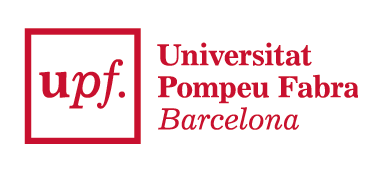
HELLO.
I'M Filomena Garcia
Associate Professor of Economics at Poole College of Management, North Carolina State University.
Who
I currently hold the position of Associate Professor of Economics at the Poole College of Management, NC State.
I use theoretical models to study the impact of strategic interaction in different areas of economics, namely industrial organization, environmental economics and financial economics. I am affiliated with the Ostrom Workshop at Indiana University and I am a research affiliate at the Lisbon School of Economics and Management of the University of Lisbon and the UECE Research Center.
Prior to this position, I served as Associate Professor of Economics at Indiana University.I completed my Ph.D. in Economics at the Catholic University of Louvain, Belgium, under the guidance of Rabah Amir, Jean Gabszewicz, and Jacques Thisse. Following my doctoral studies, I held a tenured position as an Assistant Professor at the Lisbon School of Economics and Management of the University of Lisbon from 2005 to 2011. In 2009, I co-founded the Lisbon Meetings in Game Theory and Applications, a prestigious conference for economic theory in Europe.
What
I am developing a research program in different fields of economics to study the behavior and strategies of firms, agents, and other stakeholders in the presence of different forms of complementarities. The majority of my body of work has been on the optimal behavior of firms and regulators in network industries. My ongoing research can be divided into the following themes: (i) strategy of multiplatform monopolies, (ii) environmental economics and digitization; (iii) digitization and firm organization; (iv) dynamics of international antitrust, (v) digital finance and financial fragility.
Why
I believe that to obtain economic well-being in societies, it is necessary to understand the underlying incentives and strategic interactions of economic agents. I have always been fascinated by the use of game theory to predict the outcomes of economic situations.
How
My research approach is to develop theoretical models to understand how economic agents behave in different economic settings. My models are parsimonious and can be easily brought to the data. With these methods, I can make quantitative, testable predictions.
Selected ongoing projects
A selection of research projects that I am working on

"Strategic behavior of multiplatform monopolies"
We study the optimal pricing strategies of multiplatform monopolies that offer substitute platforms. We provide an analysis of the firm's profits and of social welfare.

"Dynamic pricing of an innovative green good under discounted
network effects"
We examine the price strategy of a firm that supplies the market with an innovative green good. We obtain the steady state levels of adoption and provide welfare analysis and environmental impact analysis.
"Can self-preferencing reduce pollution?"
We examine the strategy of self-preferencing by firms towards sustainable product options, both from the welfare point of view and from the environmental impact point of view.
Manuscript in preparation for "Journal of Law and Economics"

"Nationalistic bias in collusion prosecution"
We examine potential biases that emerge in collusion prosecution when colluding firms belong to multiple countries. We unveil a prosecution delay that is detrimental to welfare and that can be corrected through a supranational competition authority.
Accepted to publication at "Scandinavian Journal of Economics"
"Digitization and firm reorganization"
In several industries, firms are adopting digital technologies. In this research we study the effects of digitization on firm reorganization and ultimately on productivity.
Manuscript in preparation.
"First-best health policy in vaccine markets with health and network externalities"
We study the optimal subsidy scheme for a social planner to induce the adoption of a vaccine when multiple market distortions are present such as negative health externalities, market power and network effects. In many cases, while the first-best is attainable, it requires negative prices for vaccines, which amounts to rewarding consumers to induce them to vaccinate.Accepted, Journal of Public Economic Theory
Published works
Journal of Public Economic Theory
ORIGINAL ARTICLE
- First-best health policy in vaccine markets with health and network externalities, Journal of Public Economic Theory, December 2023
- Nationalistic Bias in Collusion Prosecution, Scandinavian Journal of Economics, December 2023
- A Theory of Government Bailouts in a Heterogeneous Banking System, (with E. Panetti) Forthcoming at Economic Theory
- The merger paradox, collusion, and competition policy (with J. Paz y Mino and G. Torrens), Journal of Public Economic Theory, June 2020, https://doi-org.proxyiub.uits.iu.edu/10.1111/jpet.12448
- The effects of official and unofficial information on tax compliance (with L. D. Opromolla, A. Vezzulli and R. Marques). Journal of Economic Psychology, Volume 78, June 2020, 102265
- Price competition with differentiated goods and incomplete product awareness (with C. Cosandier and M. Knauff), Economic Theory, doi:10.1007/s00199-017-1050-3
- Conformity-based behavior and the dynamics of price competition: a new rationale for fashion shifts (with J. Resende), Journal of Dynamics and Games, 2016, Vol. 3(2), pp.153-167.
- Technology Adoption: Hysteresis and absence of lock-in, (with P. Colla), Economics Letters Vol. 141, Pages 107-111, April 2016.
- Revealing Incentives for Compatibility Provision in Vertically Differentiated Network Industries (with C. Vergari), Journal of Economics and Management Strategy , 2016, Vol 25(3), pp 720–749.
- When should a monopolist improve quality in a network industry? The B.E. Journal of Theoretical Economics, Vol. 13, Issue 1, Pages 381–414, January 2013.
- On Gale and Shapley “College admissions and stability of marriage" (with J. Gabszewicz, J. Pais, and J. Resende), Theoretical Economics Letters, Vol. 2, Pages 291-293, August 2012.
- R&D as a prisoner's dilemma and R&D-avoiding cartels (with R. Amir, C. Halmenschlager and J. Pais), The Manchester School, Volume 79, Issue 1, Pages 81-99, January 2011.
- Symmetry-Breaking in two-player games via strategic substitutes and diagonal nonconcavity: A synthesis, (with R. Amir and M. Knauff), Journal of Economic Theory, Volume 145, Issue 5, Pages 1968-1986, September 2010.
- A note on expanding demand and monopoly pricing (with Jean Gabszewicz), Economics Letters Volume 98, Issue 1, Pages 9-15, January 2008.
- Intrinsic quality improvements and network externalities (with Jean Gabszewicz), International Journal of Economic Theory, Volume 3, Issue 4, Pages 261-278, December 2007.
- Optimal monopoly price paths with expanding networks (with Jean Gabszewicz), Review of Network Economics Volume 6, Issue 1, March 2007.
Teaching
North Carolina State University
EC413 Industrial Organization
Indiana University
E621 Theory of Prices and Markets (PhD micro core sequence) - Spring 2020E380 Global Network Industries (undergraduate) - Spring 2018
E585 Topics in Industrial Organization (PhD) - Spring 2015, Spring 2016
E626 Game Theory (PhD) - Fall 2011/2012, Fall 2012/2013
E385 Economics of Industry (Undergraduate) - Fall 2011/2012, Spring 2011/2012, Fall 2012/2013, Spring 2012/2013, Fall 2015
Catholic University of Lisbon
Advanced Industrial Organization (PhD) - Spring 2008/2009Technical University of Lisbon - ISEG
Industrial Organization (Undergraduate) - Fall 2006/2007, Spring 2007/2008, Spring 2009/2010, Spring 2010/2011Game Theory (Undergraduate) - Fall 2006/2007, Spring 2007/2008, Spring 2009/2010, Spring 2010/2011
Theory of Regulation (MIT and Technical University of Lisbon - PhD) - Spring 2007/2008, Spring 2009/2010, Spring 2010/2011
Mathematical Economics (Master) - Fall 2007/2008, Fall 2008/2009, Fall 2009/2010, Fall 2010/2011
Mathematical Economics (PhD) - Fall 2010/2011
Microeconomics I (Undergraduate) - Fall 2008/2009
Microeconomics II (Undergraduate) - Spring 2009/2010
Macroeconomics I (Undergraduate) - Fall 2005/2007, Fall 2006/2007
Introductory Macro (Undergraduate) - Fall 2005/2006
Lisbon Meetings in Game Theory and Applications
In 2009, I co-founded the Lisbon Meetings in Game Theory and Applications. This annual conference attracts researchers doing cutting-edge research in the area of economic theory, with applications to industrial organization, international trade, strategy, banking, etc.
The conference also hosts three keynote speakers each year, with a priority when possible to exceptional researchers of underrepresented minorities.
Sign up for the Lisbon Meetings mailing list
Education

Catholic University of Louvain
Doctoral degree in Economics
Economics

University Pompeu Fabra
Master of Science in Economics and Finance
Economics

Nova School of Business and Economics
Bachelor of Science in Economics
Economics
Curriculum Vitae
Click here to download my most updated C.V.
Contacts
email: figarcia@ncsu.edu
address: Nelson Hall, 2801 Founders Dr, Raleigh, NC 27695Phone: (919) 513-7100
Social Me
Check out my latest updates!
Natasha Kingsley © 2019








